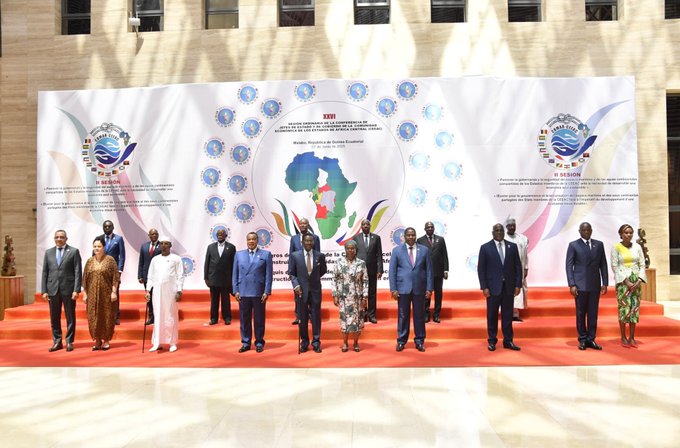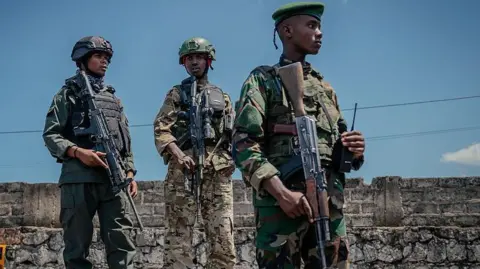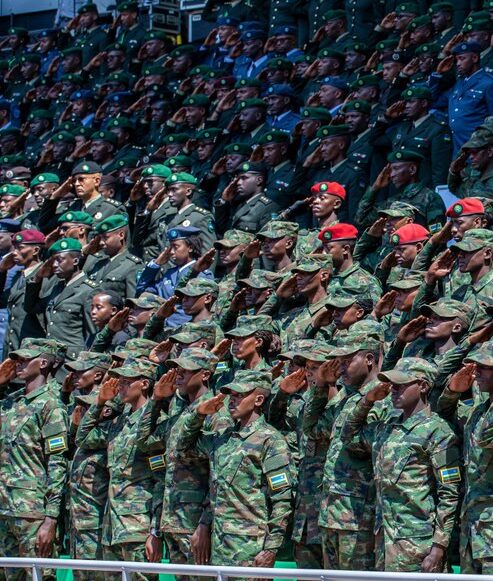Rwanda’s decision to withdraw from the Economic Community of Central African States (ECCAS) marks a dramatic escalation in regional tensions and underscores the deepening rift between Kigali and Kinshasa over the ongoing conflict in eastern Democratic Republic of Congo (DR Congo). The move, announced on June 7, 2025, is both a protest against what Rwanda sees as the bloc’s politicization and a reaction to its exclusion from the organization’s rotating leadership, a development with far-reaching implications for regional diplomacy and security.

Background to the Withdrawal
ECCAS, established in the 1980s, is an 11-member bloc designed to foster economic and security cooperation among Central African nations. Rwanda’s relationship with the bloc has often been complicated by its fraught ties with DR Congo, particularly over the M23 rebellion in eastern Congo. Rwanda has faced repeated accusations from Kinshasa, the United Nations, and Western governments of supporting the M23 rebels—allegations Kigali has consistently denied, insisting its military actions are defensive and aimed at neutralizing hostile militias linked to the 1994 Rwandan genocide.
This year, the M23 rebel group, widely believed to be backed by Rwanda, captured major cities in eastern Congo, resulting in thousands of deaths and raising fears of a broader regional conflict. Efforts by African leaders, the United States, and Qatar to broker a peace deal have so far produced only fragile ceasefires.

The Immediate Trigger: Leadership Dispute
The immediate catalyst for Rwanda’s withdrawal was a dispute at the 26th Ordinary Summit of ECCAS, held in Malabo, Equatorial Guinea. Rwanda was due to assume the rotating chairmanship of the bloc, a right it claims is enshrined in Article 6 of the ECCAS Treaty. However, the summit’s organizers decided to extend Equatorial Guinea’s tenure as chair, a move Rwanda’s foreign ministry denounced as a violation of its rights and a result of “manipulation” by DR Congo and its allies within the bloc.
In a strongly worded statement, Rwanda accused DR Congo of “instrumentalizing” ECCAS for its own ends and declared there was “no justification for remaining in an organization whose current functioning runs counter to its founding principles”. The ministry further lamented the bloc’s failure to respond to Rwanda’s formal complaints, characterizing the silence as evidence of institutional failure.
Reactions and Regional Implications
The Congolese presidency welcomed the ECCAS decision, stating that the bloc’s members had “recognized aggression against the Democratic Republic of Congo by Rwanda and demanded that the aggressor nation withdraw its forces from Congolese territory”. Congolese officials have argued that Rwanda cannot expect to lead a regional body while simultaneously violating its core principles through military intervention in a neighbor’s territory.
For ECCAS, Rwanda’s exit raises serious questions about the bloc’s cohesion and its ability to mediate regional crises. The organization, already challenged by overlapping memberships and divergent national interests, now faces the loss of a key member at a time of acute regional instability. The withdrawal also sets a precedent that could embolden other dissatisfied members and further undermine collective efforts at conflict resolution.
Broader Context: A History of Friction
This is not the first time Rwanda has left ECCAS; it previously withdrew in 2007, only to rejoin several years later. The current crisis, however, is more deeply rooted in the ongoing violence in eastern Congo and the international community’s struggle to broker a lasting peace. As both countries continue to trade accusations over support for armed groups, the risk of a wider regional war remains high.
Meanwhile, Rwanda’s departure from ECCAS may complicate ongoing peace negotiations. Both Kigali and Kinshasa are reportedly working on a US-mediated peace plan, but the breakdown of regional mechanisms for dialogue and cooperation could make any agreement harder to implement.
Conclusion
Rwanda’s withdrawal from ECCAS is a stark indicator of the region’s diplomatic and security challenges. It reflects not only the immediate fallout from the M23 conflict but also the broader difficulties of building effective regional institutions in a context of deep-seated mistrust and competing national interests. As the situation continues to evolve, the international community will be watching closely to see whether this rupture can be repaired—or whether it signals a new and more dangerous phase in Central Africa’s ongoing crisis.

